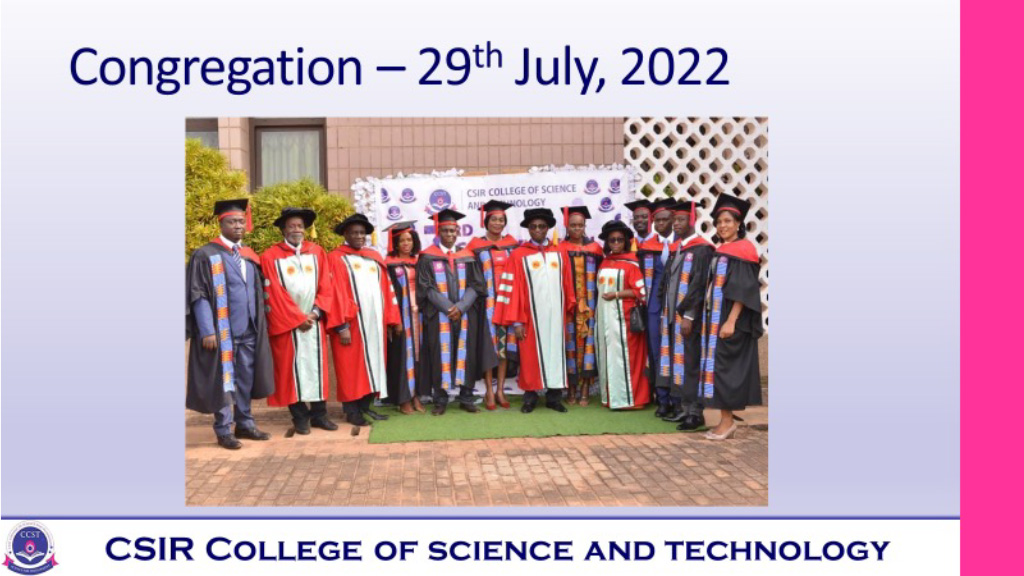MPhil in Food Science and Technology
Programme Rationale
Growth and transformation of the food industry, which will make substantial impact on the national economy, will require highly trained personnel with both theoretical knowledge and practical expertise in Food and Agro-processing. The CSIR with its long experience in scientific research which emphasizes analytical and experimental work is well placed to offer such practical-oriented training at the postgraduate level to build on basic knowledge in biological sciences acquired by students at the undergraduate level. The course should also offer the student opportunity to pursue a career in academia or research
Programme Goals
The goal of the programme is to train high caliber manpower who will have the necessary knowledge and skills to pursue a career in industry, academia or research to build up capacity to develop and transform the food processing industry and the critical areas of post-harvest food conservation and agro-processing. The MPhil programme will offer a unique opportunity for students to have a high level practical training involving food commodity processing, product development and food analysis based on national and industrial needs.
Objectives
Upon completion of this programme, learners will be able to:
- apply scientific principles to prevent deterioration in food quality and safety during manufacture and storage ;
- have comprehensive knowledge in food safety management systems, food standards and legislation to protect consumer health;
- describe underlying principles of food processing and analytical methods, and food engineering operations and be able to relate process variables to food quality indicators and monitor these variables to attain end-product specifications;
- generate innovative ideas to inspire the development and growth of small and medium food enterprises, and food industries;
- prepare their continuing professional development plan towards lifelong learning, research and generation of new ideas and findings.
Student Admission and Target groups
Successful completion of an undergraduate programme with at least a Second Class degree in Biological Science from an accredited University.
Programme Structure
YEAR 1
SEMESTER I
| Code | Course Name | Hrs | Total Credits |
|---|---|---|---|
| FoST 800 A | Laboratory Practicals | 39 | 3 |
| FoST 821 | Advanced Food Chemistry and Analysis | 39 | 3 | FoST 823 | Food Crops Post-Harvest Management and Processing | 39 | 3 |
| FoST 827 | Biometry and Experimental Design | 39 | 3 |
| FoST 825 | Food Engineering and Packaging | 39 | 3 |
| FoST 829 | Microbiology and Food Biotechnology | 39 | 3 |
SEMESTER 2
| Code | Course Name | Hrs | Total Credits |
|---|---|---|---|
| FoST 800B | Laboratory Practicals | 39 | 3 |
| FoST 822 | Food Safety and Plant Operations | 39 | 3 | FoST 824 | Animal products Science and Technology | 39 | 3 |
| FoST 826 | Agribusiness and Entrepreneurship | 39 | 3 |
| FoST 828 | Traditional Food processing Technologies | 39 | 3 |
| FoST 830 | Human Nutrition | 39 | 3 |
YEAR 2
| Code | Course Name | Hrs |
|---|---|---|
| FoST 808 | Seminar | 26 |
| FoST 900 | Thesis | 117 |


